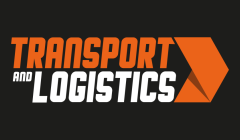Postcard From: Nigeria
Nigeria has the potential to become the most vibrant economy on the African continent, once a reliable infrastructure and diversified economy are established
Author: Tom Roberts, DHL country manager
State of the market
Nigeria is Africa’s most populous country – home to nearly 169 million people – and it’s 2012 gross domestic product (GDP) of US$262.6 billion was the second highest in the continent, after South Africa.
The country’s economy is growing fast and is attracting plenty of investment from overseas. Between 2003 and 2012, Nigeria attracted 307 foreign direct investment (FDI) projects: a 5.9 percent share of the total FDI in Africa during that period.
Because of its plentiful reserves of coal, oil and natural gas, Nigeria’s economy is still dominated by energy: it is the world’s eighth-largest producer of crude oil. But investment in other sectors, such as finance and communications, has also grown in recent years.
It’s estimated that around 50 percent of Nigeria’s population is under 15 years old. According to the World Bank, 46 percent of the population were living below the poverty line in 2010, down only slightly from the 2008 level of 48 percent. Many citizens are unemployed, and the country’s gross national income (GNI) per capita income is among the lowest in Africa, at just US$1,430 in 2012.
Strengths
The size of Nigeria’s population means there is a huge potential market for retailers of all goods and services. Communications, finance, real estate and tourism present the biggest opportunities, as Nigeria opens up to trade with countries outside Africa and its middle-class population expands.
A 2013 survey by Upstream and YouGov survey found that 66 percent of respondents named their smartphones as their most-used electronic devices, closely followed by laptop PCs. Intermittent power supplies make desktop PCs difficult to run, whereas smartphones require relatively little power and can be charged using bicycles and solar panels. With a banking system that’s still in its infancy, there’s scope for e-commerce – and mobile finance – to take off.
The country’s economy is more diversified than those of other African states that rely heavily on oil, such as Gabon. Natural resources accounted for just 35 percent of Nigeria’s real GDP growth between 2000 and 2008, while services – boosted by a series of government-led economic reforms – accounted for 37 percent.
Agriculture will be key to helping the economy diversify and become less reliant on oil. However, non-energy industrial growth will, for the time being, still come from foreign companies who want to increase their market share.
Nigeria has long-standing ties with China. Bilateral trade between the two countries is expected to reach US$10 billion by the end of 2013, up from US$2 billion in 2005. Chinese companies have recognized the growth potential in Nigeria and are investing accordingly: as of 2012, there were 208 registered Chinese companies operating in the country.
In July 2013, China agreed to loan Nigeria US$1.29 billion to fund construction of four new airport terminals; a light-railway line in the capital, Abuja; roads and hydroelectric power plants. These infrastructure improvements are vital to enabling Nigeria’s economy to achieve its growth potential in the medium to long term.
Weaknesses
Despite Nigeria’s recent growth, the country is beset by a number of challenges that may deter investors.
Security remains a major concern. Democracy is still in its infancy, after being introduced when a military dictatorship was toppled in 1999. National presidential elections that are due in 2015 already threaten to tear the country apart, and outbreaks of civil unrest are likely. The secular government is also facing threats from Islamic terrorists, and from pirates in the Gulf of Guinea. However, the government is acting to limit security threats from extremist groups and promote Nigeria as an attractive place to invest.
Government corruption is common, although government reforms and the strengthening of the private sector should help to eradicate this problem. Nigeria is also a complex place to do business, with the Economist Intelligence Unit highlighting tax compliance as a particularly complex and time-consuming process.
Nigeria has been hit hard by the falling oil prices. Domestic oil thefts have risen too, bringing oil production down to a four-year low and to nearly a fifth below its 2.5 million barrels per day (bpd) capacity. If the oil sector collapses, manufacturing and agriculture may not be able to support the country’s economy.
Basic infrastructure problems continue to hamper development. Poor road and rail networks limit expansion beyond the largest cities, and power supplies are often intermittent.
Sectors to watch
While the energy sector continues to dominate the Nigerian market, there is a big opportunity for retailers of consumer goods. As the population becomes wealthier, there is pent-up demand for first-time acquisition of consumer electronics and white goods.
South African retailers are seizing the opportunity in Nigeria as they look to expand outside their domestic market. Its largest food company, Tiger Brands, bought a majority stake in Nigerian firm Dangote Flour in September 2012. This is the latest in a string of acquisitions including ownership of biscuit producer Deli Foods, and its 49 percent stake in UAC Foods.
Another South African food group, Famous Brands, has purchased a 49 percent stake in UAC Restaurants, which owns Nigeria’s largest fast-food chain, Mr Bigg’s. But potential growth for the restaurant sector is likely to be limited to urban centers for the foreseeable future, where incomes are higher than in rural areas.
Local players
South African retailer Shoprite is planning to open 47 new stores in the African continent in the near future, most of which will be in Nigeria and Angola. The company’s managing director, Whitey Basson, has said that there is potential for up to 800 Shoprites in Nigeria alone. The seven that are already there last year sold more Moët & Chandon champagne than in all its South African stores combined.
Wal-Mart bought a majority stake in Massmart, the second-largest distributor of consumer goods in Africa, in 2011 to pave the way for expansion into the continent. It currently operates two stores in Nigeria under the discount ‘Game’ brand, with more expected to follow. French retailer Carrefour is pursuing a similar strategy, entering into a joint venture with CFAO that will give it access to eight African markets, including Nigeria.
Other local players to watch include food and drink manufacturer CHI Group, cross-sector conglomerate Honeywell, and Nigerian Breweries Limited (NBL).
Our verdict
DHL Supply Chain has been present in Nigeria since 2004, working mainly with companies in the consumer and industrial sectors. We’re keen to expand into the technology and healthcare sectors too as Nigeria’s economy develops.
The outlook for Nigeria is very promising. The recent privatization of the power sector will help the country overcome the main threat to economic growth. Uninterrupted democratic rule has also played a part in transforming the country, as its states seek innovative ways to generate their own revenue rather than rely on support from the central government.
If this progress is maintained, I see Nigeria becoming by far the fastest growing economy in Africa. And its growth will open up cross-border trade in the continent, as foreign businesses will use Nigeria to locate their West African distribution hubs.
To read more about the supply chain implications of doing business in Brazil, and other international economies visit:www.dhlsupplychainmatters.com




